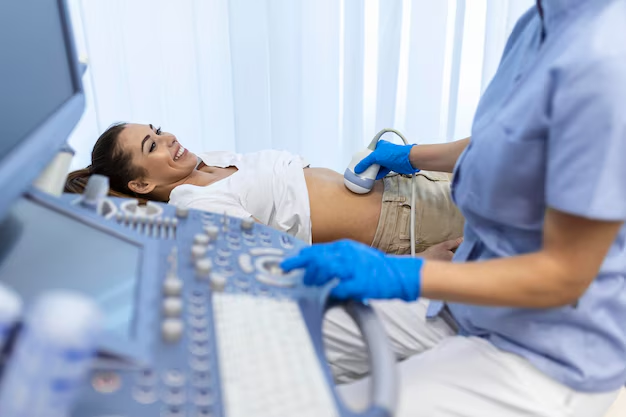How to Get Tested for Ovarian Cancer: Your Comprehensive Guide
The uncertainty surrounding a potential ovarian cancer diagnosis can be overwhelming. If you or a loved one are wondering how to get tested for ovarian cancer, you're not alone, and understanding the process can ease some of that stress. This article offers a comprehensive guide, providing the facts and insights you need to approach this with clarity and confidence.
Understanding Ovarian Cancer
Ovarian cancer, known for its subtle early symptoms, often goes undetected until it reaches an advanced stage. It affects the ovaries, which are part of the female reproductive system responsible for producing eggs and hormones like estrogen and progesterone. Recognizing its symptoms and the importance of early detection can dramatically improve outcomes.
Common Symptoms of Ovarian Cancer:
- Persistent bloating or swelling in the abdomen
- Pelvic or abdominal pain
- Difficulty eating or feeling full quickly
- Frequent urination
These symptoms can be vague and mimic other less serious conditions, making awareness crucial.
Getting Tested: Initial Steps
1. Recognizing Symptoms: If you experience any of the symptoms associated with ovarian cancer for more than a few weeks, it might be time to consult with a healthcare professional.
2. Consulting Your Healthcare Provider: Schedule an appointment with your doctor. Prepare by noting any symptoms, their duration, and any family history of cancer. This information can help your doctor decide on the next steps.
3. Medical History and Physical Exam: During your appointment, your doctor will assess your medical history and conduct a physical examination, including a pelvic exam. This can help rule out other potential causes of your symptoms.
Diagnostic Testing for Ovarian Cancer
1. Imaging Tests:
Ultrasound: This test uses sound waves to create images of the ovaries and is often the first imaging test performed. It can help identify abnormal growths.
CT Scans: A CT scan offers more detailed images and can help assess the extent of cancer if an initial suspicion arises.
2. Blood Tests:
CA-125 Blood Test: The CA-125 is a protein found in greater concentrations in ovarian cancer cells. While not definitive by itself, elevated levels of CA-125 can prompt further investigation.
HE4 Test: Another blood test, the HE4 test, is sometimes used alongside CA-125 to improve diagnostic accuracy.
3. Biopsy: If imaging and blood tests suggest ovarian cancer, a biopsy might be performed. This involves taking a tissue sample for further examination. It’s typically done surgically to ensure a precise and thorough analysis.
The Role of Genetic Testing
1. Genetic Predisposition: Certain genetic mutations, like BRCA1 and BRCA2, heighten the risk of developing ovarian cancer. If you have a family history of ovarian or breast cancer, genetic testing might be advisable.
2. Benefits of Genetic Testing: Identifying a genetic propensity for ovarian cancer can guide not only your preventive measures but also those of your family members, given the hereditary nature of certain risks.
After Testing: Understanding Diagnoses and Treatment Options
1. Interpreting Test Results: A diagnosis of ovarian cancer is understandably overwhelming. Work closely with your healthcare team to understand the specifics, such as the cancer’s stage and grade, which will influence treatment options.
2. Treatment Options:
Surgery: Often the first line of treatment, surgery aims to remove as much of the cancer as possible.
Chemotherapy: Used post-surgery or when surgery isn’t feasible, chemotherapy targets any remaining cancer cells.
Targeted Therapy: This treatment attacks specific cancer cell markers and may be used alongside chemotherapy.
3. The Importance of a Specialist: Engaging with a gynecologic oncologist is crucial, as they specialize in female reproductive cancers and can provide the most informed treatment approach.
Psychological and Emotional Considerations
1. Emotional Support: Facing potential cancer diagnosis affects mental health. Seeking support from friends, family, or professional counselors can be beneficial.
2. Joining Support Groups: These groups offer a network of individuals facing similar challenges, providing emotional support and practical advice.
3. Wellness Practices: Incorporating stress-relieving practices like meditation, yoga, or mindfulness can help manage the emotional toll during this time.
Navigating Healthcare: Advocacy and Resources
1. Be Your Advocate: Understanding your rights as a patient empowers you to insist on thorough explanations and to ask questions about every aspect of your care.
2. Financial Assistance: Treatment and testing can be expensive, but numerous organizations offer financial support. Exploring these resources can alleviate financial stress associated with testing and treatment.
Closing Insights
The journey to get tested for ovarian cancer begins with awareness and leads through a series of diagnostic steps aimed at ensuring accurate detection and treatment. By understanding the process and knowing what to expect, you take control of your health journey.
No single test can diagnose ovarian cancer definitively, but through a combination of symptom awareness, imaging, blood tests, and possible biopsies, healthcare providers ensure you receive a comprehensive evaluation. Stay informed, remain vigilant, and prioritize your well-being by engaging with healthcare professionals who can provide guidance tailored to your unique situation.
Key Takeaways:
- 🩺 Persistent Symptoms: Monitor and report any ongoing symptoms to a healthcare provider.
- 📋 Consultation: See your doctor for an examination and a discussion of your family history.
- 🧬 Testing Options: Include ultrasound, CT scans, CA-125, and possibly genetic testing.
- 🧑⚕️ Specialist Engagement: Seek care from a gynecologic oncologist for specialized treatment.
- 🤝 Emotional Support: Utilize support groups and counseling for mental well-being.
- 💡 Advocacy: Be proactive about your health and explore available resources for financial support.

Related Articles
- Are Breast Cancer Lumps Painful
- Are Chills a Sign Of Cancer
- Are Colon Spasms a Sign Of Cancer
- Are Lytic Lesions Always Cancer
- Are Polyps Cancer
- Can a Blood Test Detect Cancer
- Can a Ct Scan Detect Cancer
- Can a Dexa Scan Show Cancer
- Can a Gastric Emptying Scan Show Cancer
- Can a Lung Biopsy Cause Cancer To Spread
